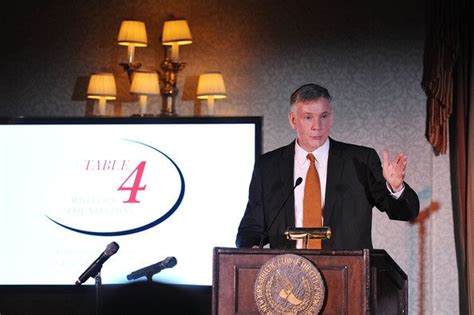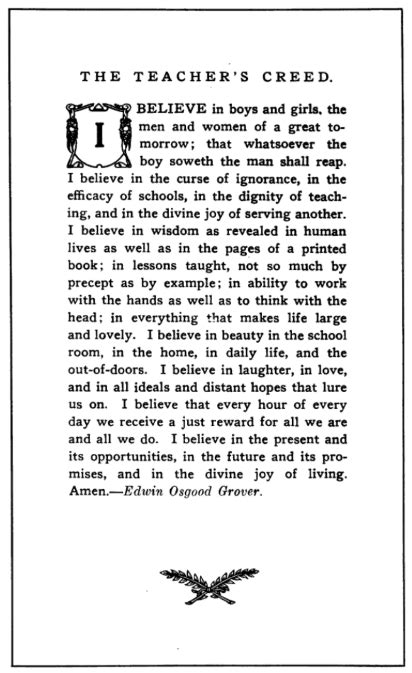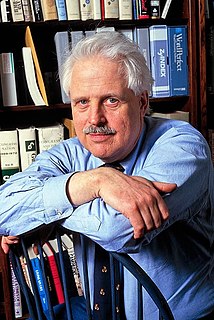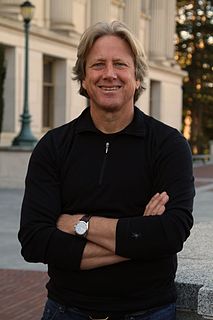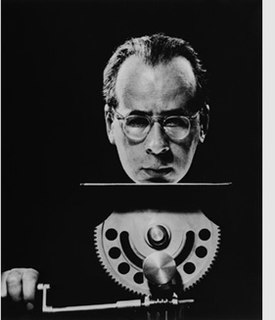Top 523 Shares Quotes & Sayings - Page 9
Explore popular Shares quotes.
Last updated on November 17, 2024.
Over the period from 1988 to 2005, the income share of the top five percent has grown by about 3.5 percent of global household income, and the shares of all the other groups have diminished. The greatest relative reduction was in the bottom quarter, which lost about one third of its share of global household income, declining from 1.155 to 0.775 percent, and now is even more marginalized.
There are exceptional loyalties and there are old fashion ideas about how you get loyalties, and after all the auditorium is full of people who have co-owned shares with the managers for many decades, and in many cases they co-invested when everyone was young and obscure. Also when you come back to a place like that you are celebrating old loyalties, and of course the basic idea behind so much of Berkshire is the old fashioned idea that the best way to get loyalty is to deserve loyalty.
We hug, but there are no tears. For every awful thing that's been said and done, she is my sister. Parents die, daughters grow up and marry out, but sisters are for life. She is the only person left in the world who shares my memories of our childhood, our parents, our Shanghai, our struggles, our sorrows, and, yes, even our moments of happiness and triumph. My sister is the one person who truly knows me, as I know her. The last thing May says to me is 'When our hair is white, we'll still have our sister love.
You want to keep more of the money you earn? I'm afraid that's very selfish. We shall want to tax that away. You want to own shares in your firm? We can't have that. The state has to own your firm. You want to choose where to send your children to school? That's very divisive. You'll send your child where we tell you.
Stories are the collective wisdom of everyone who has ever lived. Your job as a storyteller is not simply to entertain. Nor is it to be noticed for the way you turn a phrase. You have a very important job--one of the most important. Your job is to let people know that everyone shares their feelings--and that these feelings bind us. Your job is a healing art, and like all healers, you have a responsibility. Let people know they are not alone. You must make people understand that we are all the same.
The Common Core State Standards Initiative is an important step forward in ensuring that the United States remains competitive in the global economy. Career technical education (CTE) shares the Initiative s goal that all students must be college and career ready. CTE programs that incorporate the Common Core Standards will ensure students have the academic and technical knowledge and skills to be successful in the 21st century workplace.
There are two keys to productive missionary work -- (1) family-to-family friendshipping (when a member family shares the gospel with a nonmember family) and (2) cooperation between members and the missionaries to reach people...Every member knows of nonmembers he or she can refer to the missionaries. Every father, mother, and youth in this church should share the gospel by giving a Book of Mormon, telling the account of the Prophet Joseph Smith, or inviting our acquaintances to a special meeting.
Memory, faith, and the natural world as both witness to the cycle of human life and healer to a questioning heart are at the core of this lovely and lyrical collection of poems. The weather changes, people come and go from cities and towns, babies are born, grow up and depart from their parents’ arms, but still, the countryside and its rituals sustain the people and creatures who know how to read the signs of the seasons. In these pages, Laura Grace Weldon shares those signs with us; her poems are the fruit of a wonderful harvest.
Santa Claus is anyone who loves another and seeks to make them happy; who gives himself by thought or word or deed in every gift that he bestows; who shares his joys with those who are sad; whose hand is never closed against the needy; whose arm is ever outstretched to aid the week; whose sympathy is quick and genuine in time of trouble; who recognizes a comrade and brother in every man he meets upon life's common road; who lives his life throughout the entire year in the Christmas spirit.
God is not only the God of the sufferers but the God who suffers. ... It is said of God that no one can behold his face and live. I always thought this meant that no one could see his splendor and live. A friend said perhaps it meant that no one could see his sorrow and live. Or perhaps his sorrow is splendor. ... Instead of explaining our suffering God shares it.
The main thing about the character [in the Ordinary World] is that he loves music, and he shares it with his daughter. He's having a mid-life moment, and it's a small moment, really. I think that the character actually really loves where he's at, in his life. He's just trying to have it make a little bit more sense while he figures out what he actually wants to do with it.
The real difficulty is that people have no idea of what education truly is. We assess the value of education in the same manner as we assess the value of land or of shares in the stock-exchange market. We want to provide only such education as would enable the student to earn more. We hardly give any thought to the improvement of the character of the educated. The girls, we say, do not have to earn; so why should they be educated? As long as such ideas persist there is no hope of our ever knowing the true value of education.
Traditional sales and marketing involves increasing market shares, which means selling as much of your product as you can to as many customers as possible. One-to-one marketing involves driving for a share of customer, which means ensuring that each individual customer who buys your product buys more product, buys only your brand, and is happy using your product instead of another to solve his problem. The true, current value of any one customer is a function of the customer's future purchases, across all the product lines, brands, and services offered by you.
You have to establish your love. You should feel a hankering for others. Now the competition has to change, the style of competition among Sahaja Yogis. The competition should be how much you love. Who loves more ? Let there be a competition who obliges more, who shares more ? Who loves others more ?
Madame Merkel knows very well that her conservative Christian Democratic Union or CDU, and the CSU, the Bavarian sister party to the CDU, with which it shares power nationally, must change their European policies. The FDP's nationalist-liberal position on Europe is presumably one of the reasons the attempt failed to form a Jamaica coalition government which would have seen the CDU, FDP and Green Party govern together.
Every sensation shares the same characteristic: it arises and passes away, arises and passes away. It is this arising and passing that we have to experience through practice, not just accept as truth because Buddha said so, not just accept because intellectually it seems logical enough to us. We must experience sensation’s nature, understand its flux, and learn not to react to it.
The private motives of scientists are not the trend of science. The trend of science is made by the needs of society: navigation before the eighteenth century, manufacture thereafter; and in our age I believe the liberation of personality. Whatever the part which scientists like to act, or for that matter which painters like to dress, science shares the aims of our society just as art does.
Index funds are... tax friendly, allowing investors to defer the realization of capital gains or avoid them completely if the shares are later bequeathed. To the extent that the long-run uptrend in stock prices continues, switching from security to security involves realizing capital gains that are subject to tax. Taxes are a crucially important financial consideration because the earlier realization of capital gains will substantially reduce net returns.
To be good Christians you have to contemplate the suffering humanity of Jesus. "How can we bear witness? Contemplate Jesus. How can we forgive? Contemplate Jesus suffering. How can we not hate our neighbor? Contemplate Jesus suffering. How can we avoid gossiping about our neighbor? Contemplate Jesus suffering. There is no other way". These virtues are the those of the Father, who forgives us always, and Our Lady, Our Mother, shares in these virtues too.
And you, my best friend on earth, my soul sister who shares Chunky Monkey scoops and beefcake e-mails at the drop of a hat, the woman who made me wear a frothy, ruffled lime-colored bridesmaid dress that added fifteen pounds to my hips, are going to spill your guts to me, aren’t you? (Sunshine) No fair and the dress wasn’t lime, it was mint. (Selena) It was lime-icky green and I looked like a sick pistachio. (Sunshine)
The awful atrocities of religion happened when people assume that God shares your likes and dislikes. The Crusaders when into battle to kill Muslims and Jews and cried, "God will's it." That was their battle cry. Obviously God willed no such thing. The Crusaders were simply projecting onto a deity they'd created on their own image and likeness, all their hatred and loathing of these faiths and made it endorse some of their most awful prejudices and lethal prejudices.
Taking the continent as a whole, this religious tension may be responsible for the revival of the commonest racial feeling. Africa is divided into Black and White, and the names that are substituted- Africa south of the Sahara, Africa north of the Sahara- do not manage to hide this latent racism. Here, it is affirmed that White Africa has a thousand-year-old tradition of culture; that she is Mediterranean, that she is a continuation of Europe and that she shares in Graeco-Latin civilization. Black Africa is looked on as a region that is inert, brutal, uncivilized - in a word, savage.
We preach free enterprise capitalism. We believe in it, we give our lives in war for it, but the closest most of us come to profiting from it are a few miserable shares of stock in a company that doesn't pay large enough dividends to keep a small mouse in cheese. The truth is, most of us are job serfs. At a time when invested capital returns 20 to 30 percent, we have no capital. We only have our wages and salaries, and a debt so high that something like 20c on every dollar we earn is spent to pay off what we owe.
But because me and myself, as you no doubt are well aware, we are going to die, my relation—and yours too—to the event of this text, which otherwise never quite makes it, our relation is that of a structurally posthumous necessity. Suppose, in that case, that I am not alone in my claim to know the idiomatic code (whose notion itself is already contradictory) of this event. What if somewhere, here or there, there are shares in this non-secret’s secret? Even so the scene would not be changed. The accomplices, as you are once again well aware, are also bound to die.
If you have that spark that inspires other people, if you have a spark that gives resources to other people, that shares in really collaborative fashion, a spark of wit that kind of tells a story that gives people novel perspective of something, that's the kind of charisma that really leads to lasting power. It's not the kind of charisma that's seductive and self-aggrandizing. It's really a sort of a kind of social energy that really brings about the best in other people.
When the photographer Philippe Halsman said, 'Jump,' no one asked how high. People simply pushed off or leapt up to the extent that physical ability and personal decorum allowed. In that airborne instant Mr. Halsman clicked the shutter. He called his method jumpology.
The idea of having people jump for the camera can seem like a gimmick, but it is telling that jumpology shares a few syllables with psychology. As Halsman, who died in 1979, said, 'When you ask a person to jump, his attention is mostly directed toward the act of jumping, and the mask falls, so that the real person appears.'
Value investors will not invest in businesses that they cannot readily understand or ones they find excessively risky. Hence few value investors will own the shares of technology companies. Many also shun commercial banks, which they consider to have unanalyzable assets, as well as property and casualty insurance companies, which have both unanalyzable assets and liabilities.
Spiritual power is generated within temple walls, and sent out to bless the world ... Every home penetrated by the temple spirit enlightens, cheers, and comforts every member of the household. The peace we covet is found in such homes. Indeed, when temples are on earth, the whole world shares measurably in the issuing light; when absent, the hearts of men become heavy, as if they said, with the people of Enoch's day, 'Zion is fled'" (See Moses 7:69).
Walking and talking are two very great pleasures, but it is a mistake to combine them. Our own noise blots out the sounds and silences of the outdoor world; and talking leads almost inevitably to smoking, and then farewell to nature as far as one of our senses is concerned. The only friend to walk with is one who so exactly shares your taste for each mood of the countryside that a glance, a halt, or at most a nudge, is enough to assure us that the pleasure is shared.
Sourav's greatest asset is his ability to communicate. He is a naturally very confident person. He encourages his team, is a great motivator and a born captain. He is not the media's blue eyed boy because he is a very straightforward person, who never minces his words, instead he talks in a no nonsense manner to the press. He shares an extremely healthy rapport with his teammates. His leadership skills are also vouched for by the youngsters in the team. He has phenomenal brand value. He's the new-age Indian, an aggressive go-getter, full of self-belief, determination.
At the end of the day, no amount of investing, no amount of clean electrons, no amount of energy efficiency will save the natural world if we are not paying attention to it - if we are not paying attention to all the things that nature give us for free: clean air, clean water, breathtaking vistas, mountains for skiing, rivers for fishing, oceans for sailing, sunsets for poets, and landscapes for painters. What good is it to have wind-powered lights to brighten the night if you can't see anything green during the day? Just because we can't sell shares in nature doesn't mean it has no value.
For example, John Law's Mississippi Company venture printed shares, and the money had gone up in smoke when it had been inscribed objects. The inscription made it magic and changed its meaning. That's how objects become charmed in The Arabian Nights, and they are often originally ordinary objects. The carpet is an ordinary, paltry object. The lamp is a rusty old lamp, and the bottles jinns are imprisoned within are old bottles. They are changed by the magic and the jinn's presence, and the jinn's presence is often embodied in the seal or inscription.
While no one wishes to incur losses, you couldn't prove it from an examination of the behavior of most investors and speculators. The speculative urge that lies within most of us is strong; the prospect of a free lunch can be compelling, especially when others have already seemingly partaken. It can be hard to concentrate on potential losses while others are greedily reaching for gains and your broker is on the phone offering shares in the latest "hot" initial public offering. Yet the avoidance of loss is the surest way to ensure a profitable outcome.
By connecting with one's Divine Self, Carol Whitaker has captured the essence of transformation from within. Like a diet for the mind, Ridiculously Happy! guides you on a spiritual journey allowing you to harness the power of the mind, body and spirit to achieve a level of mental and physical wellness one may not have thought possible. I'm a big fan of energy therapy and love that Carol shares the EFT tapping technique which anyone can quickly and easily use to find peace and healing in their lives. This book is a must have!
You learn to live with your crazy enthusiasms which nobody else shares, and then you find a few other nuts like yourself, and they're your friends for a lifetime. That's what friends are, the people who share your crazy outlook and protect you from the world, because nobody else is going to give a damn what you're doing, so you need a few other people like yourself.
Our mythology tells us so much about fathers and sons. ... What do we know about mothers and daughters? ... Our power is so oblique, so hidden, so ethereal a matter, that we rarely struggle with our daughters over actual kingdoms or corporate shares. On the other hand, our attractiveness dries as theirs blooms, our journey shortens just as theirs begins. We too must be afraid and awed and amazed that we cannot live forever and that our replacements are eager for their turn, indifferent to our wishes, ready to leave us behind.
If General Motors, Ford and Chrysler get the bailout that their chief executives asked for yesterday, you can kiss the American automotive industry goodbye. It won't go overnight, but its demise will be virtually guaranteed. Without that bailout, Detroit will need to drastically restructure itself. With it, the automakers will stay the course - the suicidal course of declining market shares, insurmountable labor and retiree burdens, technology atrophy, product inferiority and never-ending job losses. Detroit needs a turnaround, not a check.
This, then, is the ultimate, that is only, consolation: simply that someone shares some of your own feelings and has made of these a work of art which you have the insight, sensitivity, and — like it or not — peculiar set of experiences to appreciate. Amazing thing to say, the consolation of horror in art is that it actually intensifies our panic, loudens it on the sounding-board of our horror-hollowed hearts, turns terror up full blast, all the while reaching for that perfect and deafening amplitude at which we may dance to the bizarre music of our own misery.
At last I understood that the way over, or through this dilemma, the unease at writing about 'petty personal problems' was to recognize that nothing is personal, in the sense that it is uniquely one's own. Writing about oneself, one is writing about others, since your problems, pains, pleasures, emotions—and your extraordinary and remarkable ideas—can't be yours alone. [...] Growing up is after all only the understanding that one's unique and incredible experience is what everyone shares.
There are three important principles to Graham's approach. [The first is to look at stocks as fractional shares of a business, which] gives you an entirely different view than most people who are in the market. [The second principle is the margin-of-safety concept, which] gives you the competitive advantage. [The third is having a true investor's attitude toward the stock market, which] if you have that attitude, you start out ahead of 99 percent of all the people who are operating in the stock market - it's an enormous advantage.
What I react against in other people's work, as a filmgoer, is when I see something in a movie that I feel is supposed to make me feel emotional, but I don't believe the filmmaker shares that emotion. They just think the audience will. And I think you can feel that separation. So any time I find myself writing something that I don't really respond to, but I'm telling myself, 'Oh yes, but the audience is going to like this,' then I know I'm on the wrong track and I just throw it out.
Roque...lined his men up and had them produce all the clothing, jewels, money, and other objects that they had stolen since the last time they had divided the spoils. Having made a hasty appraisal and reduced to terms of money those items that could not be divided, he split the whole into shares with such equity and exactitude that in not a single instance did he go beyond or fall short of a strict distributive justice. They were all well satisfied with the payment received, indeed they were quite well pleased; and Roque then turned to Don Quixote.
In Sharia, nobody will be able to sell pork publicly. Nobody will be drinking alcohol. Pornography will be banned. Gambling will be banned. In terms of the economy, the wealth which is not tangible, either good or deficit, things like insurance, pension, stocks, shares, etc., they will be prohibited because you're supposed to deal with things, which are goods, which you can see, which you can trade with.




